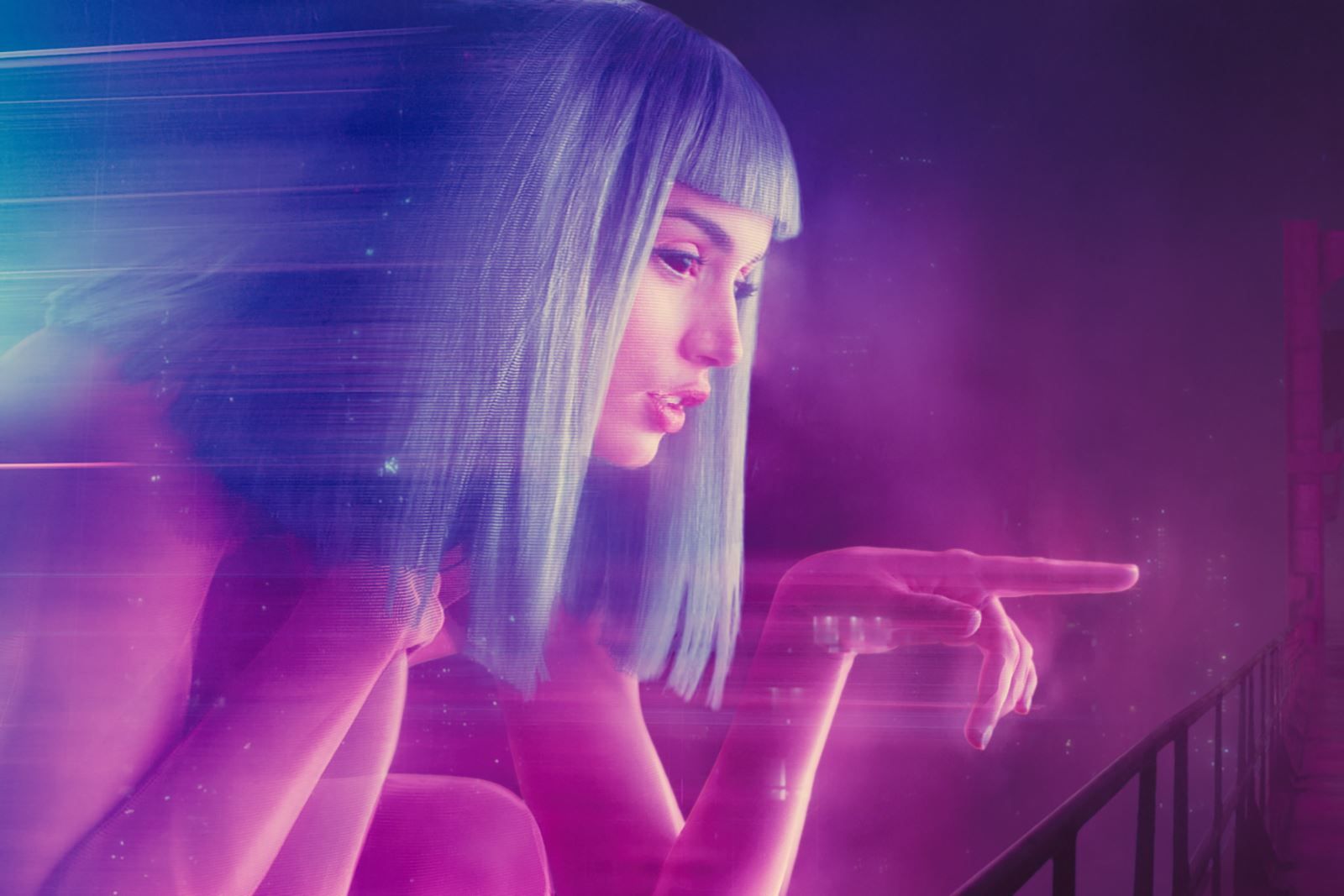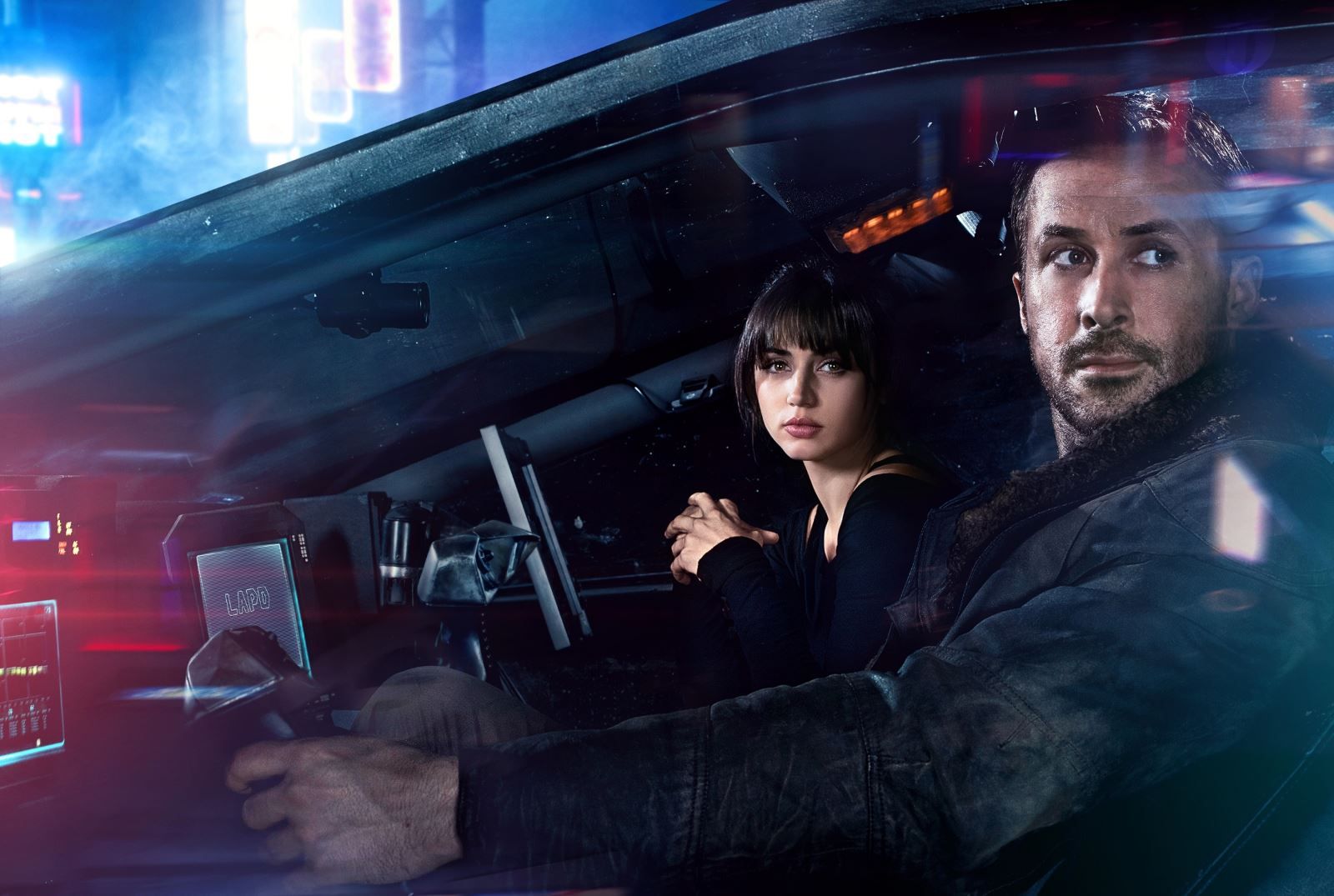Now out on DVD and Blu-ray (as well as 4K Ultra HD Blu-ray), Harrison Ford returns to his role as Rick Deckard in Blade Runner 2049. The film's story will pick-up several decades after the conclusion of the original 1982 Blade Runner.
But the move to a more futuristic time got us thinking more about Artificial Intelligence (AI). It actually got us wondering, what could a replicant actually think and feel? So we interviewed Dr Angelica Lim Ph.D to find out. Lim is a roboticist who builds artificial intelligence software. Her work largely concerns whether robots can ever become more human-like and have feelings of their own. Here's the result of our chat:
How intelligent could AI software get? Is it really possible that it could match human brains in terms of ingenuity?
Ingenuity, to generalise and solve a problem one's never seen before or encountered, could be one of the most difficult things for AI to do. Today's AI's solve rather specific problems, and can do that well. To be faced with an absolutely new situation and MacGyver its way to solve it? It's something that kids can do very well, but machines truly fail at.
How excited are you that AI is increasingly a part of everyday life for many people, albeit in a basic way. And how do you see AI developing in our lives over the next 10-20 years?
It's fascinating how far our technology has come in the last 20 years. Twenty years ago, very few households had the internet and smartphones didn't exist. My hope is that today's advances in AI, such as with deep learning for speech processing made popular with OK Google, Siri, Amazon Alexa, will enable technology to become more human-compatible. Like Joi, we would be able to interact with technology in a smooth and human-like way, instead of tapping at screens.
Could AI and machine learning mean that a robotic being could eventually learn to solve any problem?
We do have to be careful that we do not project too much sentience onto robots - a robot that looks like a human on the surface does not at all reflect what is going on in its software. There may be absolutely "no one home", a marionette. That said, some roboticists believe that having a body is necessary to be able to learn and understand what is actually going on. Today's AI's can produce inputs and outputs in the ways we train them, but they do not understand a lick of what they are doing or why. A robotic body may be a bridge towards understanding cause and effect in the real world.
Can our relationships with robots really go beyond feeling that a robot is just that, a utilitarian object that is subservient to humans?
I believe that robots that are extremely human-like could engender this feeling. For that reason, I am from the camp of roboticists that believe that robots should look like robots. They should not try to deceive us into thinking that they are humans, and this is part of the UK EPSRC Principles of Robotics, which demand transparency. If the robots remain machine-looking, then they can remain utilitarian and perform the tasks we want them to. At the same time, making robots with humanoid bodies is useful to be able to gesture and communicate in ways we understand. It will be a fine balance going forward.
Could we truly grow an emotional attachment like we do with pets?
I've never had a pet, so I can't speak to what that feels like. But people already do have robotic pets, such as the Aibo robot in Japan. They are useful, for example, in care homes where real pets aren't allowed for sanitary reasons. Do you already have an emotional attachment to your phone? Is it replaceable? Imagine the same thing with a robot. If your robot's mind was in the cloud, and could be downloaded to a new body, then it wouldn't be a big deal to lose it, for example. But if its loss was permanent, and that history could never come back, perhaps we would feel something much stronger.
Why don't humans like robots that resemble human beings?
There are a couple of studies that look into this. One theory is that humans feel threatened by robots that look like human, because it suggests that we aren't unique. Our idea of what it means to be human is undermined, and our sense of identity is threatened. You can take a look at this article for more information.
How realistic is the 'rise of the robots' scenario? Is it really likely that robots could 'go rogue'?
If we dismiss it as being far-fetched (because we want to be positive), are we being irresponsible? There is a lot of hogwash behind this Hollywood idea. In Japan, for example, the "rise of the robots" scenario does not exist. It's almost laughable! At the same time, its important to be vigilant about robots and actual ethical issues today. Drones that are equipped with automatic weapons are being discussed internationally at the UN. We could also talk about cars that can automatically drive themselves, and how to regulate that. It would be much more responsible to talk about these topics, and not ones of fantasy. Robots seriously don't know what's going on: if they were to go rogue, its because a sensor would be mis-calibrated and it kept on rolling directly into a wall, not because it gained sentience.
Robots tend to have an image problem, in that people think they're going to take their jobs or, eventually, supersede humans. How can we think about robots and AI in a more positive light?
Make robots cute and emote. Interestingly, I was watching a show the other day with a prototypical "bad guy" that had very little affect on his face. He spoke without emotion, without reaction, and that lent itself to his cold and mean demeanor. If robots could become more empathetic (such as what I do with my Rosie Lab at Simon Fraser University, building Robots with Social Intelligence and Empathy) it would naturally make them more personable and desirable to be around!
And, while I am not a policy expert, I do think about how we could work less (e.g. a 35 hour work-week) if more robots were doing jobs. This would require a high-level societal change to distribute work equally to prevent mass unemployment to particular individuals.
Finally, how can robots be more fun and help humans to enjoy more fulfilling lives?
Simply, they could save us time so we could spend more of it with our family and friends! They could also tell jokes. I do love jokes :)
Blade Runner 2049 is out now on 4K Ultra HD, Blu-ray and DVD
Check out Which is the best robot vacuum cleaner?



